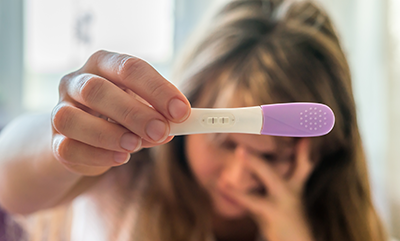Examining Obstacles to Abortion Care in South Carolina.
 Between 2011 and 2016, more than 300 state laws related to abortion were passed in the US, many of them restricting access to abortion services. In South Carolina, abortions are now prohibited at 20 weeks (down from 24 weeks), and most public and private insurance plans do not cover the procedure.
Between 2011 and 2016, more than 300 state laws related to abortion were passed in the US, many of them restricting access to abortion services. In South Carolina, abortions are now prohibited at 20 weeks (down from 24 weeks), and most public and private insurance plans do not cover the procedure.
A study led by School of Public Health researchers of a sampling of South Carolina women who had abortions in 2014 found “a range of interrelated logistic and emotional challenges women faced on the path to receiving timely and affordable abortion care,” including a lack of referrals, financial strain, and stigma.
The study, published online in Perspectives on Sexual and Reproductive Health, points to a need for “a wider net of medical professionals who are committed and trained to offer practical and emotional support to women as they navigate the sometimes difficult pathways to timely, affordable, and nonjudgmental abortion care.”
The research team interviewed 45 women who had abortions to explore how they sought information and care. In the practical realm, the women described the challenges of securing finances and transportation for abortions, which cost $400 to $1,000, and were offered at three freestanding clinics located in different parts of the state. In the emotional domain, many of the women said they experienced stigma, fear of judgment, and self-judgment.
Regarding referrals for abortion care, while 20 study participants reported having contact for pregnancy testing with a medical provider or a staff member of a “crisis pregnancy center”—in many cases, a facility that discourages abortions—only 7 were given referrals for abortion services. Among those who had contact but did not get a referral, some said they would have liked to receive this information, along with the pregnancy test result. In the absence of a professional referral, the women found abortion clinic information through friends, family, previous experience, and online searches.
Many of the study participants reported turning to friends and family for financial help to pay for the abortions because of a lack of insurance coverage. For some, this was difficult, while for others, it provided a form of social support.
In several cases, women who had appointments at an abortion clinic that was located next door to a crisis pregnancy center described accidentally going into the crisis center, where staff members tried to dissuade them from having abortions.
“I walked in and was telling the lady that I was there for the abortion pill, and she said, ‘All right, come in this room,’” one woman reported. “[I said] ‘Oh gosh, I’m at the wrong place,’ and she replied, ‘No honey, you’re at the right place’ … I just wanted to hurry up and get out of there ‘cause I felt like she was judging me.’”
The authors said that expansion of abortion funding for low-income women, as well as clinic discounts based on income, would help to ease the financial burden, “especially given the fragmented insurance coverage” across US states. They said the “uneven and constantly shifting legal and social environment” regarding abortion care would require state- and region-specific research to identify gaps and assist women in accessing care.
The study was funded by, and done in collaboration with, Provide, Inc., a national organization conducting abortion-referral training for health and social service professionals in states where abortion access is limited. It was led by Judy Margo, project manager in community health sciences, who completed the project for her DrPH dissertation (she graduated in September 2016). SPH co-authors include: Lois McCloskey and Emily Feinberg, associate professors of community health sciences; and Gouri Gupte, assistant professor of health law, policy, and management.
Melanie Zurek, director of Provide in Cambridge, Massachusetts, and Seema Bhakta, an independent consultant, were co-authors.